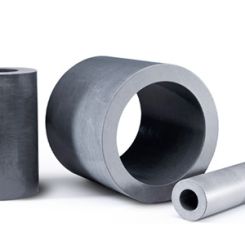

Dale Parrett, 53, began his career in the pumps industry while still earning his mechanical engineering degree at the University of Dayton. During his early years at Ohio-based Moyno Inc., Parrett started in drafting and transitioned to an applications engineering role. Later, he was promoted to product/project engineer after finishing his bachelor’s. He found this position especially rewarding since he “was able to redesign [and] create products to improve performance by using new manufacturing methods.”
Parrett received valuable education from a variety of sources over the years, but when asked which training helped him most, he replied, “The best training was working hands-on in the lab at the beginning of my career. There, I learned the ins and outs of progressing cavity pumps and the principles.”
Parrett was also fortunate enough to find himself under the tutelage of excellent mentors and managers. “My first manager, Alan Wild, taught me that it was okay to fail and that he expected me to fail often during my designs in the lab. Without failing, you never know the true limit of your design and how to keep learning. I offer this same advice to new engineers in their career—to test and learn and test and learn again.”
Later in his career, working at SEEPEX Inc., Parrett would transition from design engineering into roles in management, a change he found rewarding but challenging. “I like and want to solve the problem instead of delegating. I have been fortunate in my career to work with and manage talented engineers.”
In addition to his dedication to the pumping industry over his 30-plus-year career, Parrett is also a retiree of the Ohio Air National Guard with over two decades of service. In his spare time, he enjoys “spending time with family and friends, working on cars, hunting and rooting on the Ohio State Buckeyes and Pittsburgh Steelers.”
What, in your opinion, are the biggest challenges that the industry is facing?
The growing population and the aging infrastructure in pump systems are causing higher pressures and increased power consumption, making solutions complex and often difficult to solve in a timely manner.
What has working in the industry meant to you?
Working in this industry means contributing to systems that keep communities running and industries functioning.

